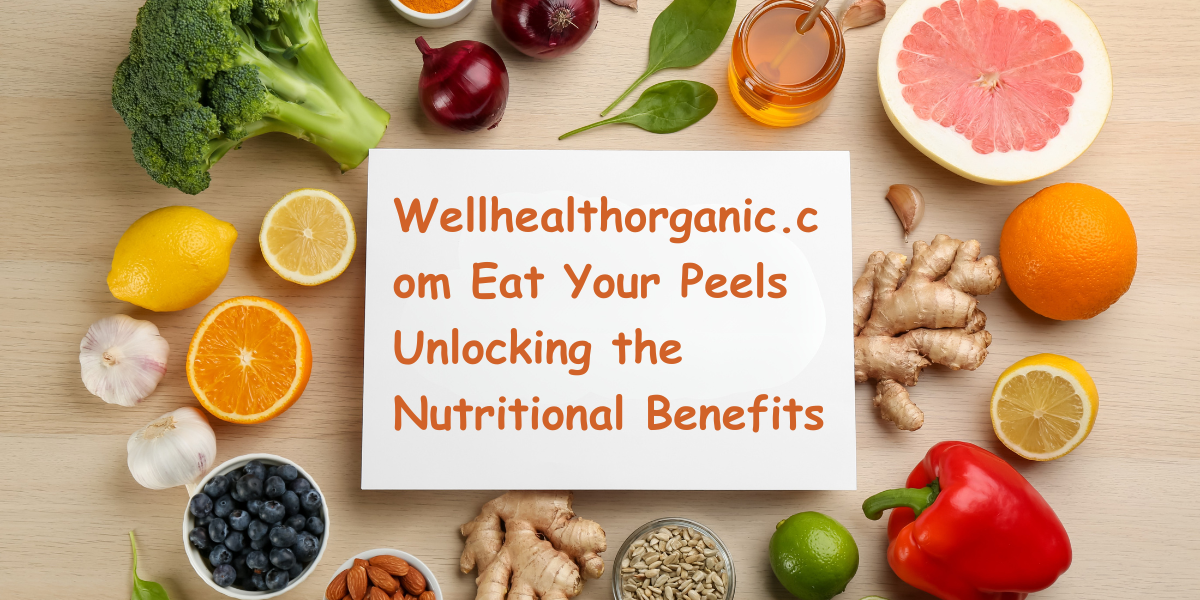Did you know that fruit and vegetable peels hold a powerhouse of nutrients? While most people discard them, these peels are rich in fiber, antioxidants, and essential vitamins. This article explores the nutritional benefits of consuming peels and how you can incorporate them into your diet safely.
Why Do People Discard Peels?
Many individuals peel fruits and vegetables before consuming them due to concerns about pesticides, texture, or habit. Unfortunately, this practice leads to food waste and a loss of vital nutrients.
Common Reasons for Discarding Peels:
- Fear of Pesticide Residue – Many believe peels contain harmful chemicals.
- Texture & Taste Preferences – Some find the texture of peels unpleasant.
- Lack of Awareness – Most people are unaware of the health benefits of peels.
Read Also: My Best Hours Report Productivity and Maximize Efficiency
What Are We Losing?
By discarding peels, we lose significant nutritional value. Here’s a comparison of nutrients found in peels versus the flesh of fruits and vegetables:
| Fruit/Vegetable | Nutrients in Peel | Nutrients in Flesh |
|---|---|---|
| Apple | Fiber, Vitamin C, Quercetin | Sugars, Fiber |
| Banana | Vitamin B6, Potassium | Carbohydrates, Fiber |
| Potato | Fiber, Iron, Vitamin C | Carbohydrates, Starch |
| Orange | Flavonoids, Vitamin C | Vitamin C, Sugars |
| Cucumber | Antioxidants, Fiber | Water, Vitamin K |
As shown in the table, peels contain higher concentrations of fiber, vitamins, and antioxidants than the inner portions of fruits and vegetables.
Read Also: How Do Trade Sanctions Shape Diplomacy and Disrupt Economies Worldwide?
How to Safely Consume Peels
To fully harness the benefits of peels, follow these simple strategies:
1. Wash Thoroughly
- Use vinegar or baking soda to remove pesticide residue.
- Scrub with a brush under running water.
2. Opt for Organic
- Organic produce reduces the risk of consuming harmful chemicals.
3. Incorporate Peels in Your Diet
- Smoothies: Blend apple, cucumber, or carrot peels into your smoothie.
- Baking: Use citrus zest in cakes or cookies.
- Soups & Stews: Add potato peels for extra fiber.
- Tea & Infusions: Boil citrus peels for a refreshing drink.
4. Try Pickling & Roasting
- Roast potato or pumpkin peels with spices for a crispy snack.
- Pickle watermelon rinds for a tangy treat.
Read Also: Discover the Power of MyLiberla.com to Financial Freedom
Health Benefits of Eating Peels
1. Rich in Fiber
- Promotes healthy digestion and prevents constipation.
- Keeps you full longer, aiding in weight management.
2. High in Antioxidants
- Helps fight free radicals and reduces the risk of chronic diseases.
3. Boosts Immunity
- Peels contain essential vitamins like Vitamin C and A, strengthening the immune system.
4. Supports Heart Health
- Peels of apples and citrus fruits contain flavonoids that lower cholesterol and blood pressure.
5. Regulates Blood Sugar
- The fiber content in peels slows down sugar absorption, preventing blood sugar spikes.
Read Also: About Puwipghooz8.9 Edge Unveiling Its Potential and Key Features
Commonly Consumed Peels & Their Benefits
| Peel Type | Nutritional Benefits | Best Ways to Consume |
| Apple Peel | High in fiber & antioxidants | Smoothies, baking, salads |
| Banana Peel | Rich in Vitamin B6 & magnesium | Smoothies, stir-fries, tea |
| Citrus Peel | Loaded with Vitamin C & flavonoids | Tea, zest in recipes |
| Cucumber Peel | Contains antioxidants & fiber | Salads, sandwiches |
| Potato Peel | High in iron & fiber | Roasted, soups |
Read Also: How www.techoelite.com is Shaping the Future of Technology Blogging
FAQs on Wellhealthorganic.com Eat Your Peels Unlocking the Nutritional Benefits
1. Is it safe to eat all fruit and vegetable peels?
Not all peels are safe to eat. Avoid avocado and pineapple peels as they are too tough and contain irritants.
2. How can I remove pesticides from peels?
Soak fruits and vegetables in a mixture of vinegar and water (1:4 ratio) for 10 minutes, then rinse thoroughly.
3. Can banana peels be eaten raw?
Yes, but they taste better when cooked or blended into smoothies.
4. What are the best ways to use citrus peels?
You can zest them into dishes, make citrus peel tea, or use them in homemade cleaning solutions.
5. Are potato peels nutritious?
Yes, they contain fiber, iron, and vitamin C, making them a healthy addition to your diet.
Conclusion
Eating fruit and vegetable peels is a simple yet effective way to enhance your nutrition and reduce food waste. With proper washing and preparation, you can safely enjoy the health benefits of these overlooked food parts. Start incorporating peels into your diet today and unlock their full potential.
